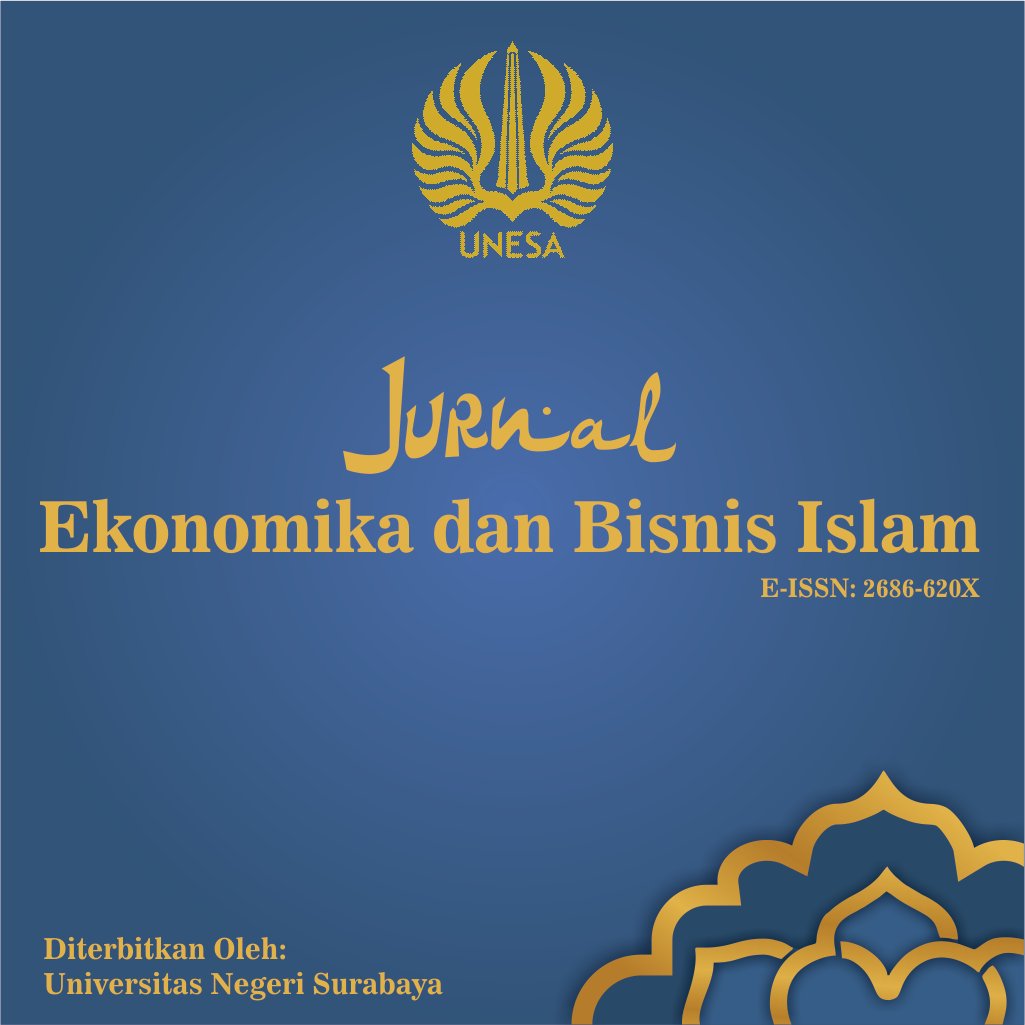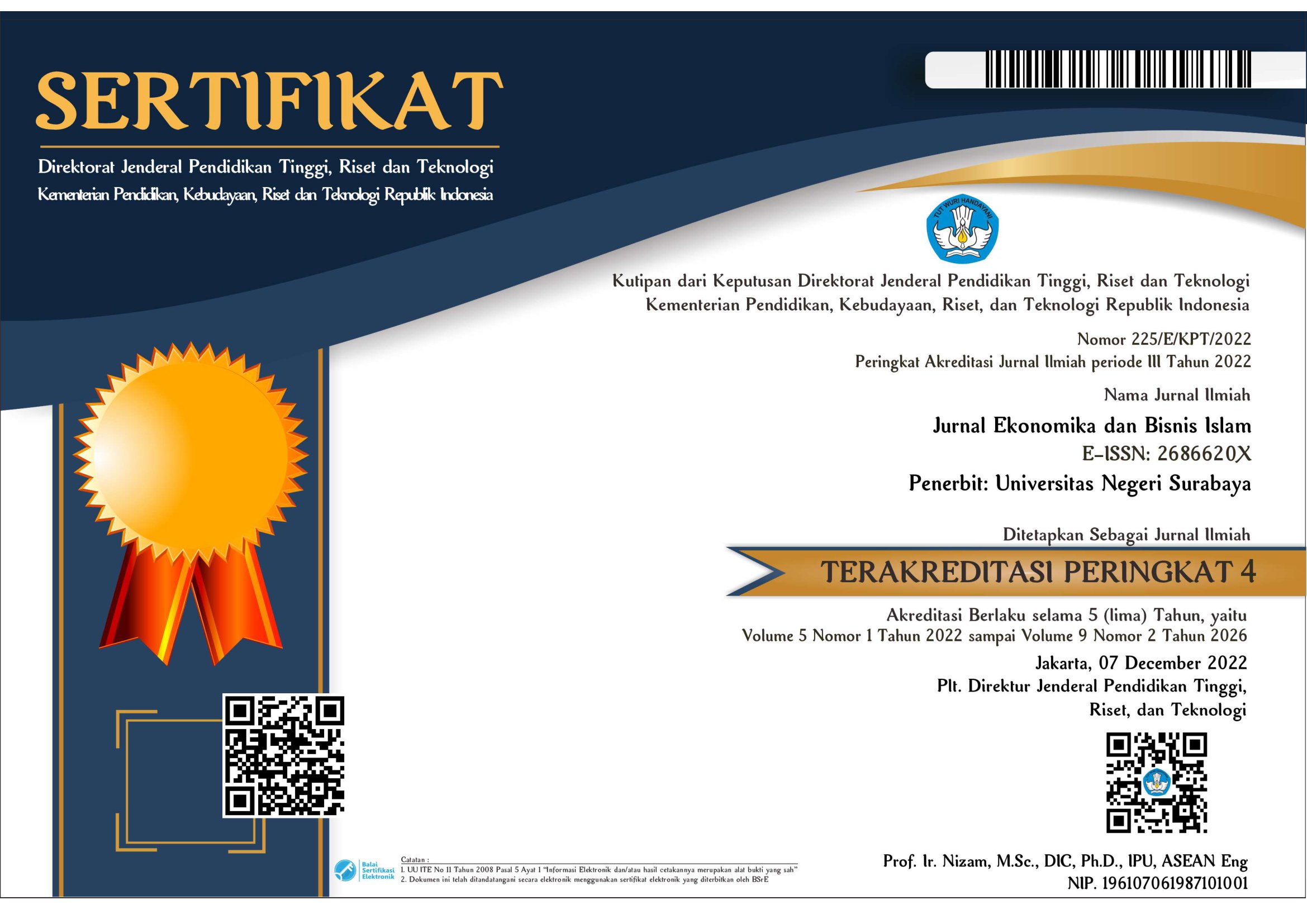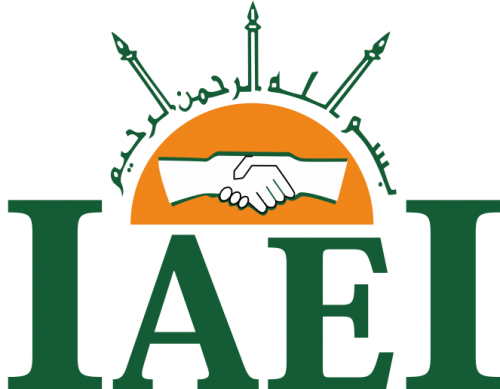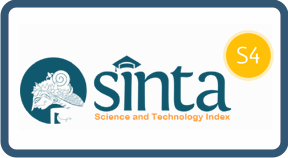Pengaruh Religiusitas dan Pengetahuan Halal Terhadap Minat Berkunjung pada Objek Wisata di Malang Raya
DOI:
https://doi.org/10.26740/jekobi.v4n2.p179-187Keywords:
Religiosity, Halal Knowledge, Visit Intention, Halal TourismAbstract
The current globalization has changed the paradigm of society towards tourism to make it part of the lifestyle. Increasingly massive and uncontrolled developments must still involve the role of religion so as not to break the rules. Muslim tourists as consumers are required to be more critical of the guarantee of tourist activities in accordance with sharia principles. The purpose of this research is to know the influence of religiosity and halal knowledge as a reflection of the critical attitude of tourists to the interest in visiting tourist attractions in Malang Raya. The research was conducted with quantitative approach through multiple linear regression analysis. The research population is the Muslim community of Surabaya city of 85.5% of the total population in 2020. Then, for the research sample of 100 respondents according to the calculation with slovin formula. Data collection utilizes questionnaire instruments and is processed with SPSS version 23 application. The results showed that religiosity had an insignificant effect on visiting interests. Meanwhile, halal knowledge has a significant effect on the interest in visiting. Then, simultaneously, the variables of religiosity and halal knowledge affect the interest of visiting.
References
Badan Pusat Statistik Kota Surabaya. (2021). Hasil Sensus Penduduk 2020.
Ferdinand, A. (2002). Pengembangan Minat Beli Merek Ekstensi. Badan Penerbit Universitas Diponegoro.
Global Muslim Travel Index. (2019). Global Muslim Travel Index 2019. https://www.crescentrating.com/reports/global-muslim-travel-index-2019.html
Jalaluddin. (2005). Psikologi Agama. PT Raja Grafindo Persada.
Karim, A. (2014). Ekonomi Mikro Islam. Rajawali Pers.
Kementerian Pariwisata dan Ekonomi Kreatif Republik Indonesia. (2019). Narasi Tunggal: 5 Tahun Kembangkan Pariwisata Halal, Indonesia Akhirnya Raih Peringkat Pertama Wisata Halal Dunia 2019. https://kemenparekraf.go.id/berita/Narasi-Tunggal-%3A-5-Tahun-Kembangkan-Pariwisata-Halal%2C-Indonesia-Akhirnya-Raih-Peringkat-Pertama-Wisata-Halal-Dunia-2019
Komite Nasional Ekonomi dan Keuangan Syariah. (2020). Template Memandu Muslim Traveler Dalam Pengembangan Pariwisata Daerah.
Liputan6.com. (2019). Jadi Destinasi Wisata Halal, Kunjungan Wisman Ke Malang Bakal Naik 10 Persen. https://www.liputan6.com/bisnis/read/3953158/jadi-destinasi-wisata-halal-kunjungan-wisman-ke-malang-bakal-naik-10-persen
Mutmainah, L. (2018). The Role of Religiosity, Halal Awareness, Halal Certification, and Food Ingredients on Purchase Intention of Halal Food. December 2018. https://doi.org/10.12928/ijiefb.v1i1.284
Sugiyono. (2013). Metode Penelitian Pendidikan Pendekatan Kuantitatif, Kualitatif, dan R&D. Alfabeta.
TravelDetik.com. (2019). Jawa Timur Perkenalkan Wisata Halal. https://travel.detik.com/travel-news/d-4738457/jawa-timur-perkenalkan-wisata-halal
Widyaningrum, P. W. (2019). Pengaruh Label Halal, Kesadaran Halal, Iklan, dan Celebrity Endorser terhadap Minat Pembelian kosmetik melalui variabel Persepsi sebagai Mediasi (Studi Pada Civitas Akademika Universitas Muhammadiyah Ponorogo). Capital: Jurnal Ekonomi Dan Manajemen, 2(2), 74. https://doi.org/10.25273/capital.v2i2.3984
World Travel and Tourism Council. (2020). Global Economic Impact and Trends 2020. June.
Downloads
Published
How to Cite
Issue
Section
License
This work is licensed under a Creative Commons Attribution 4.0 International License.
 Abstract views: 1964
,
Abstract views: 1964
, PDF Downloads: 2188
PDF Downloads: 2188














